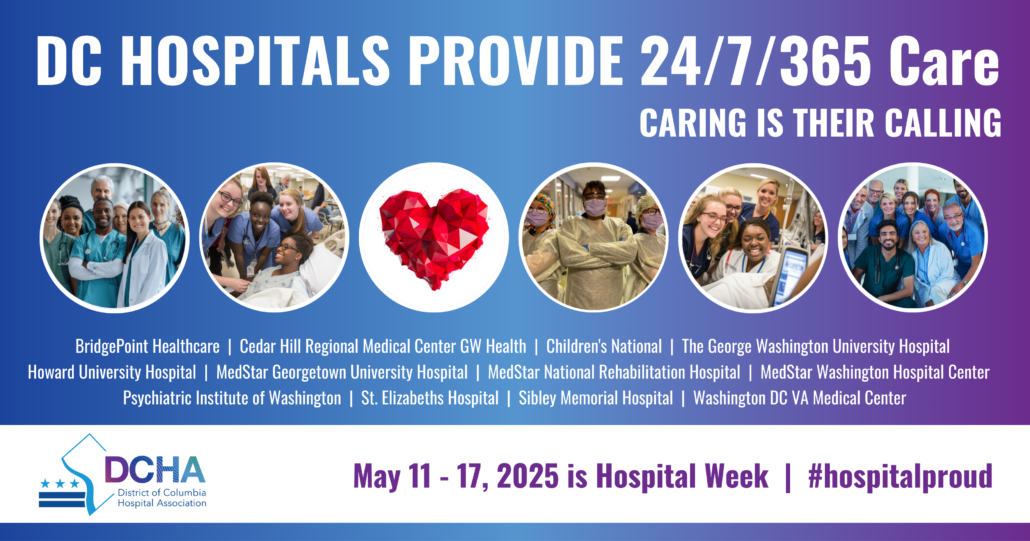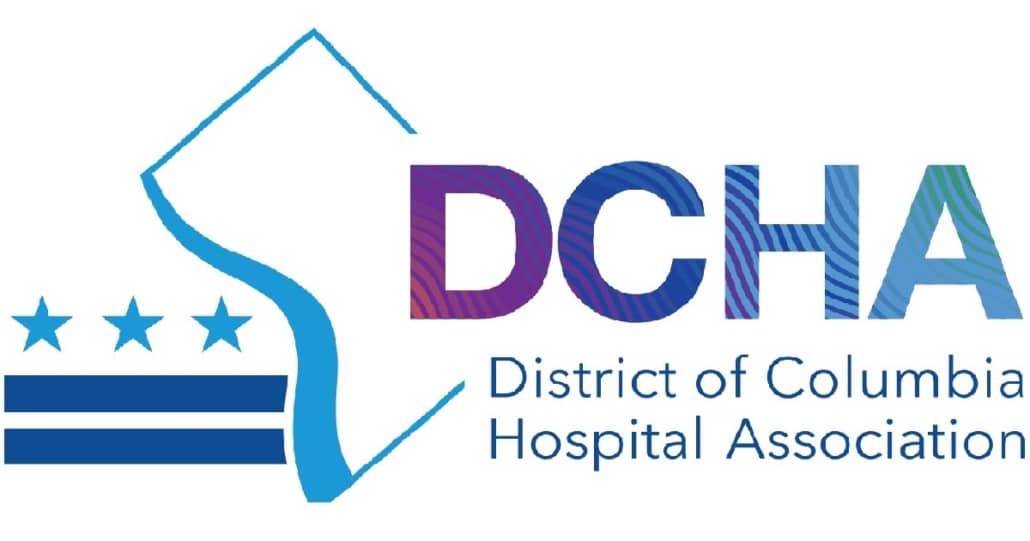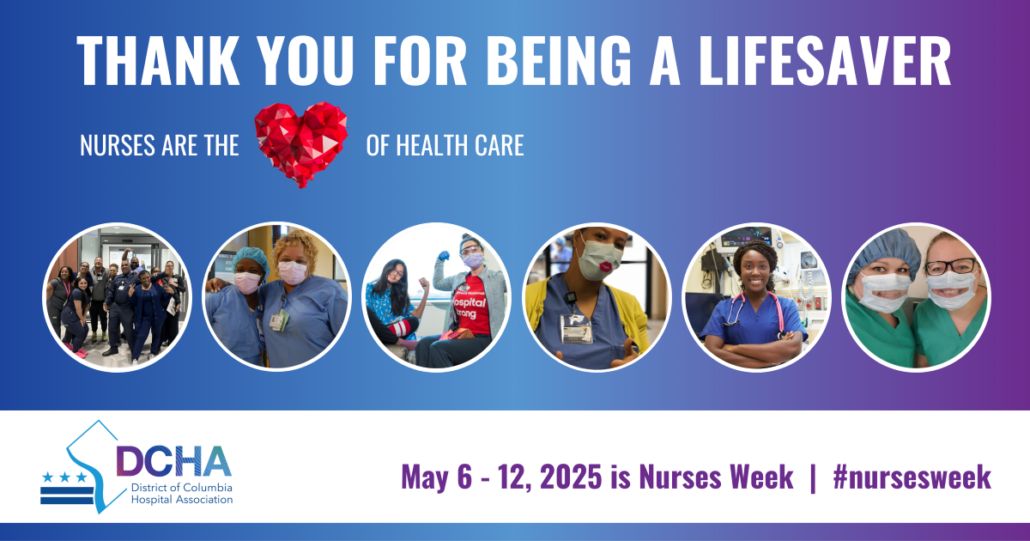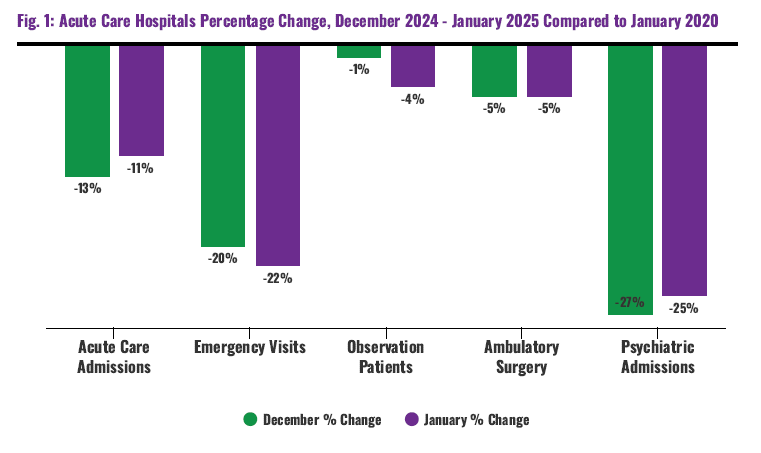GW Hospital Focuses on Colon Cancer and Prevention
Dr. Marian Khalili, a colon and rectal surgeon at The George Washington University Hospital, discusses colon cancer, how to prevent it, and the importance of being screened early.
Dr. Marian Khalili, a colon and rectal surgeon at The George Washington University Hospital, discusses colon cancer, how to prevent it, and the importance of being screened early.

The District of Columbia Hospital Association salutes our hospitals for providing excellent care 24/7/365. This week, May 11-17, is National Hospital Week. Caring is their calling. #hospitalproud


The charts and tables in this publication are intended to provide aggregate and comparative data on health care facility utilization in the District of Columbia. The source of the data is the DCHA’s Monthly Utilization Survey (self-reported by individual facilities). Please note, though not annotated on every graphic, the impact of the closure of Providence Hospital – Ascension in the Spring of 2019 and the COVID-19 pandemic beginning in the Spring of 2020 can be seen in utilization patterns throughout this report.

The District of Columbia Hospital Association and our member hospitals thank the extraordinary nurses that are the heart of health care. May 6-12 is National Nurses Week. Thank you for being a lifesaver!
Nationales Kinderkrankenhaus, Cedar Hill Regional Medical Center GW Health, MedStar Washington Hospital Center, MedStar Nationales Rehabilitationskrankenhaus, Sibley Memorial Hospital, Johns Hopkins Medicine, MedStar Georgetown University Hospital, Washington DC VA Medical Center, DC Health, Howard-Universitätskrankenhaus, Universitätskrankenhaus George Washington, Psychiatrisches Institut von Washington, BridgePoint Healthcare
#NWoche der Krankenschwestern

Join us in our fight to preserve DC Medicaid. Cuts will undermine the stability of our health care providers, increase emergency room wait times, raise the cost of care and threaten services for everyone who lives, works, and visits our nation’s Capital.
Cutting DC’s Federal Medicaid match would force hospital closures, workforce reductions, and budget and service cuts that will put public safety at risk. Please join us in our fight to preserve DC Medicaid by signing this petition because Medicaid cuts would undermine the stability of all our healthcare providers, increase emergency room wait times, raise the cost of care and threaten services for everyone who lives, works, and visits our nation’s Capital.
Come work for an outstanding association and team at the District of Columbia Hospital Association as Executive Assistant to the President & CEO and Liaison to the Board of Directors. The District of Columbia Hospital Association has, for almost 45 years, worked to advance the missions of the hospitals and health systems of the District of Columbia by promoting policies and initiatives that strengthen the system of care, preserve access and promote better health outcomes for the patients and communities they serve. The Executive Assistant provides high-level administrative support to the President and CEO of the DC Hospital Association and serves as the key staff liaison to the DCHA Board of Directors. The Executive Assistant is responsible for managing the Executive office’s daily operations, coordinating communications, assisting with Board planning and activities, and ensuring smooth organizational functions. The role requires exceptional organizational, communication, writing, and multitasking abilities.

Highlights: Looking at utilization metrics this month, three out the five metrics show an increase in volumes. Acute care admissions went from -13% below pre-COVID baselines in December to -11% in January, with all but one hospital presenting increase in volumes as depicted in Table 2 of the report. Psychiatric admissions also present a slight uptick in volumes going from -27% below baseline in December to -25% in January. Although ambulatory surgeries percent change remains steady in Fig. 1 below, a slight increase in volumes can be noted as presented in Table 17 of the report. Emergency department visits show a slim decline in volumes going from -20% below baselines in December to -22% in January, and observation admissions mirror the same pattern going from -1% to -4% below baselines as pictured in Fig. 1 below.


On April 4, 2025, the DC Hospital Association proudly joined members of the DC health care community in the 2025 Annual Medical Response and Surge Exercise (MRSE). Hosted by the DC Health and Medical Coalition under the Hospital Preparedness Program Grant, the MRSE serves as a vital, annual opportunity to evaluate and strengthen our collective emergency response capabilities.
This year’s exercise simulated a mass casualty event stemming from a coordinated attack during World Pride, scheduled to take place in Washington, D.C. this June. The realistic scenario tested the region’s ability to manage a sudden influx of patients, coordinate communications, and provide critical care under pressure.
Participants included a broad spectrum of health care stakeholders— DC Health, hospitals, long-term care and ambulatory providers, DC Fire and EMS, the DC Primary Care Association, and others. Their joint involvement demonstrated the power of collaboration and coordination across the District’s health care infrastructure during high-stress emergency situations.
Key information systems were tested during the MRSE:
The MRSE highlighted not only the technological readiness of DC’s health care system, but also the preparedness of its people. Exercises like these are critical in ensuring that staff and leadership at every level of the health care continuum are trained and ready to respond when it matters most.
As DC prepares to welcome global visitors for World Pride this summer, the lessons learned and strengths demonstrated during the MRSE affirm our shared commitment to the health and safety of all who live, work, and celebrate in the nation’s capital.